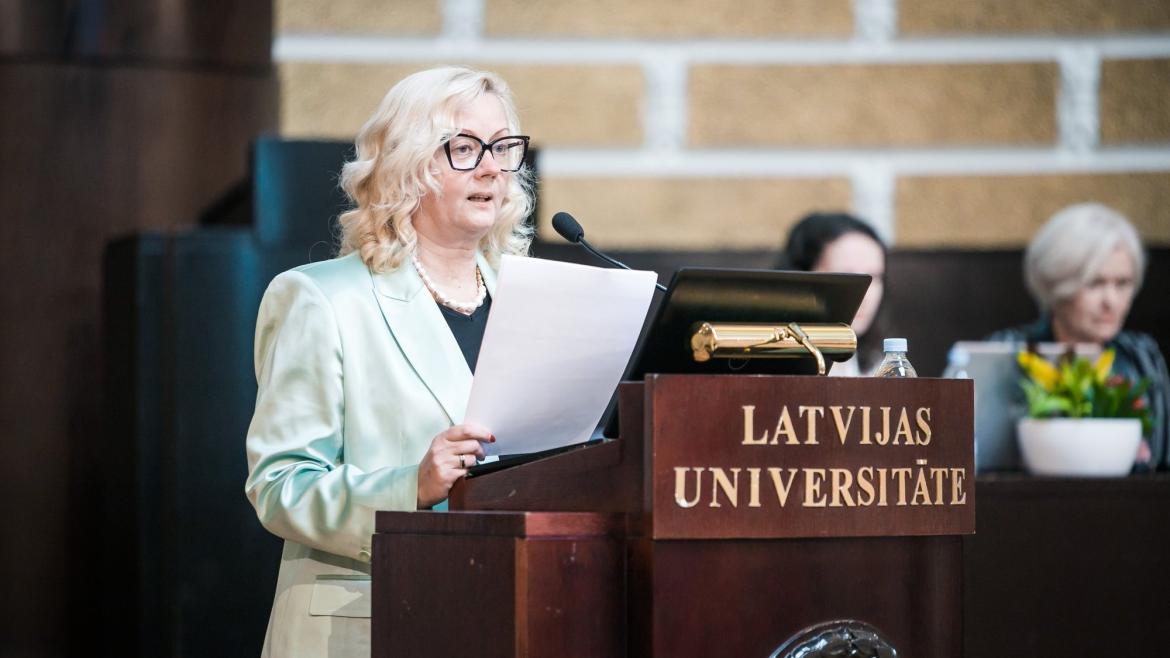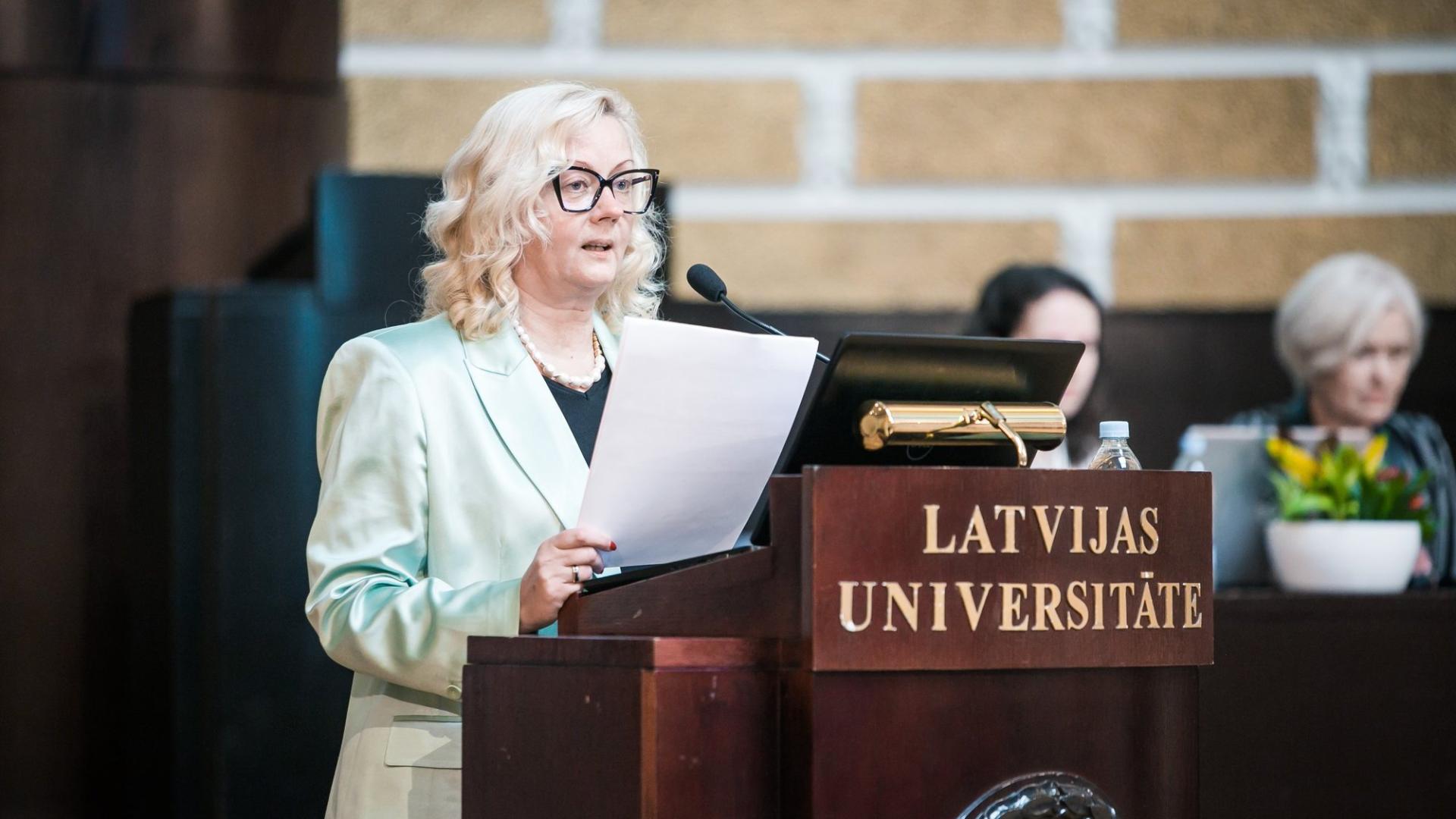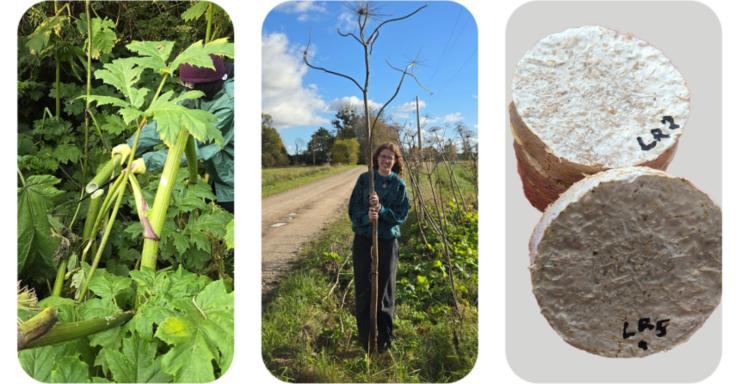Stereotypes still surround doctoral studies in Latvia. In Latvia, doctoral studies are still shrouded in stereotypes. Although these have long been debunked, they continue to live on in the public mind. Just a few of the clichés: doctoral studies are only for those who want a career in science or academia (working in universities or institutes); postgraduate studies mean “living from hand to mouth” because there is no salary and the stipend is meagre; people only do a doctorate because they cannot find a “normal job”; doctoral students are “cheap labour” for experienced researchers’ projects; and so on. The list of foolish notions could go on.

These and many other factors are the reason why the number of PhDs in Latvia is currently far lower than it should be. Moreover, in Latvia, doctoral studies are often mistakenly seen as simply the next stage after a master’s degree, with the doctoral dissertation viewed as “a slightly more in-depth master’s thesis.” But postgraduate studies are not just the writing of a promotion thesis – they are a long-term career goal: to engage in science. It is a serious choice – to be a researcher.
The Latvian National Development Plan for 2021–2027 aims to significantly increase the number of people under 35 obtaining a doctoral degree. One way to achieve this is to change the very nature of postgraduate studies radically.
That is, doctoral studies should not be, as people often think, “a continuation of the master’s, only a bit more serious,” but a rigorous research activity from the very first day up to the defence of the promotion thesis and the right to call oneself a Doctor of Science.
According to a 2025 European University Association study, which also included the University of Latvia, more than half (52%) of European doctoral students plan careers outside academia, while 29% say they have always wanted to pursue a career in higher education. These figures show that the doctoral degree has become an important milestone not only for academic careers but also for professional fields, including public administration, industry, and innovation processes in various sectors. Scientifically grounded decisions are essential for policymaking to address applied, socially significant issues. Meanwhile, doctoral studies allow young researchers to influence the development of the state, society, economy, and education, while at the same time acquiring the knowledge and skills needed for research.
Last year, Latvia began introducing a new doctoral model aimed at fundamentally changing the funding system for studies and ensuring research-based learning, where the doctoral candidate’s task is to produce original research that innovatively addresses a problem in a scientific discipline or across disciplines (the University of Latvia offers studies in 13 doctoral programmes), in industry, or public administration. The doctoral student is now not just a learner but also an active member of Latvia’s scientific community.
The new funding system is designed to ensure that the doctoral student can devote as much time and attention as possible to their primary task – research – rather than worrying about survival by working three jobs and "occasionally sitting down with the books" in their spare time.
The University of Latvia currently offers several pathways for completing doctoral studies, allowing them to be tailored to those who want to stay in academia as well as those aiming to develop in industry or public administration.
A new researcher wishing to obtain a doctoral degree can become an employee of UL, with job duties linked to research and study outcomes. A doctoral student may also work at UL, for example, as a research assistant or lecturer, while studying for their degree. But they can also be employed outside UL – for instance, in a school, hospital, research institute, or another university in Latvia. UL also offers the opportunity to study in a joint doctoral programme with a foreign university, implementing the so-called "co-tutelle" model, which allows one to earn a double doctoral degree. This model enables postgraduate students to work in international research networks and produce a high-level promotion thesis.
UL has also significantly expanded opportunities for future researchers to strengthen links between science, industry, and society during their studies. Industrial doctoral studies are one of the cornerstones of the new model. This means the doctoral student conducts research at UL while collaborating with a specific industry partner, such as a manufacturing company. The doctoral student works in two places at once – UL and an industry organisation (a company, museum, school, ministry, etc.). This approach allows a much broader range of people, including young researchers already working in companies, to participate in doctoral studies – not only without losing their current job but even creating added value for the employer through new knowledge, data, prototypes, and so on.
UL provides scientific supervision and research infrastructure, while the industry partner offers a work environment and a real-world research problem to address.
This model develops innovative knowledge in a given field, ensures doctoral student employment in a professional environment, and promotes the commercialisation of research. In essence, the doctoral student is no longer just a student – they are a researcher whose work benefits society.
Encouraging doctoral candidates to focus their research on practically significant topics, UL plans to organise a promotion thesis topic exchange in the next academic year, where representatives from various industries will present their current research needs. It may be that a company’s leadership already dreams of developing a particular product or service but lacks the internal resources to assess the idea’s viability. Here is the perfect opportunity – formulate your idea, define what needs to be researched, and come to UL with the proposal: here is my need, help me study it! The university, in turn, can offer these ideas to prospective doctoral students looking for a research area to which they can devote their energy and expertise.
We are aware that the new doctoral model is not a “magic wand” that will instantly increase the number of postgraduate students and graduates, because, as with any new system, there are still many unknowns and issues to resolve. Nevertheless, this is a significant step towards making doctoral studies more accessible and strengthening cooperation between science and society.
The hall of the UL Doctoral School bears the Latin motto "Sapere aude" (“Dare to know!” in English). This is our motto and our call to all the knowledgeable and the brave who wish to explore and change the world!


